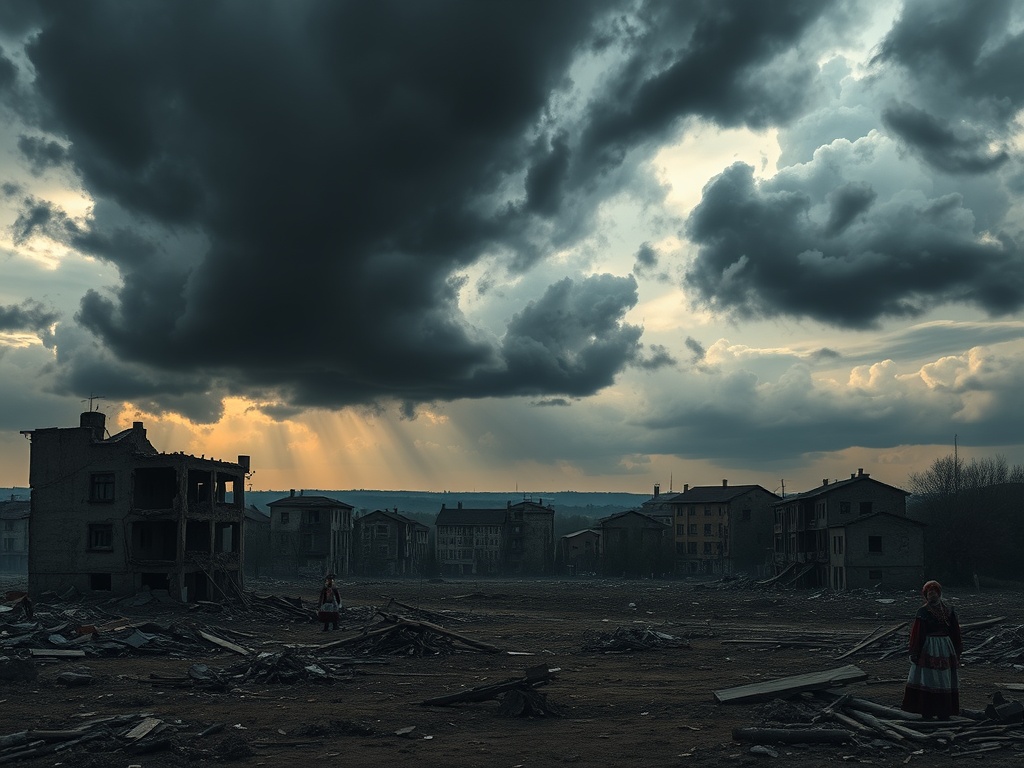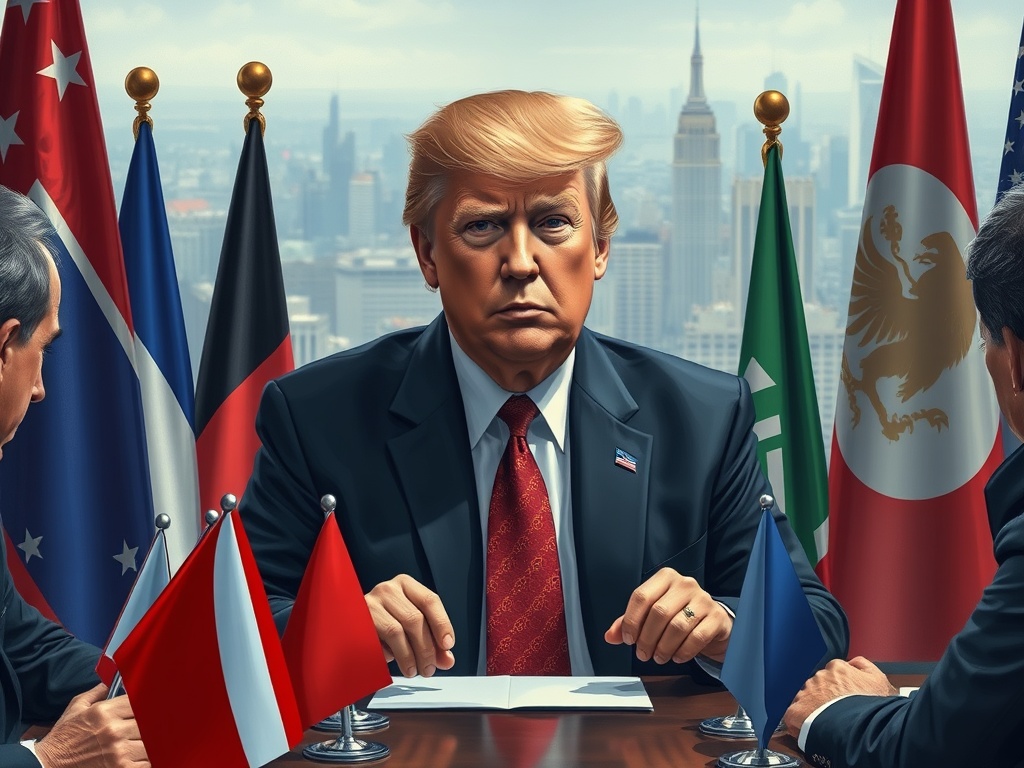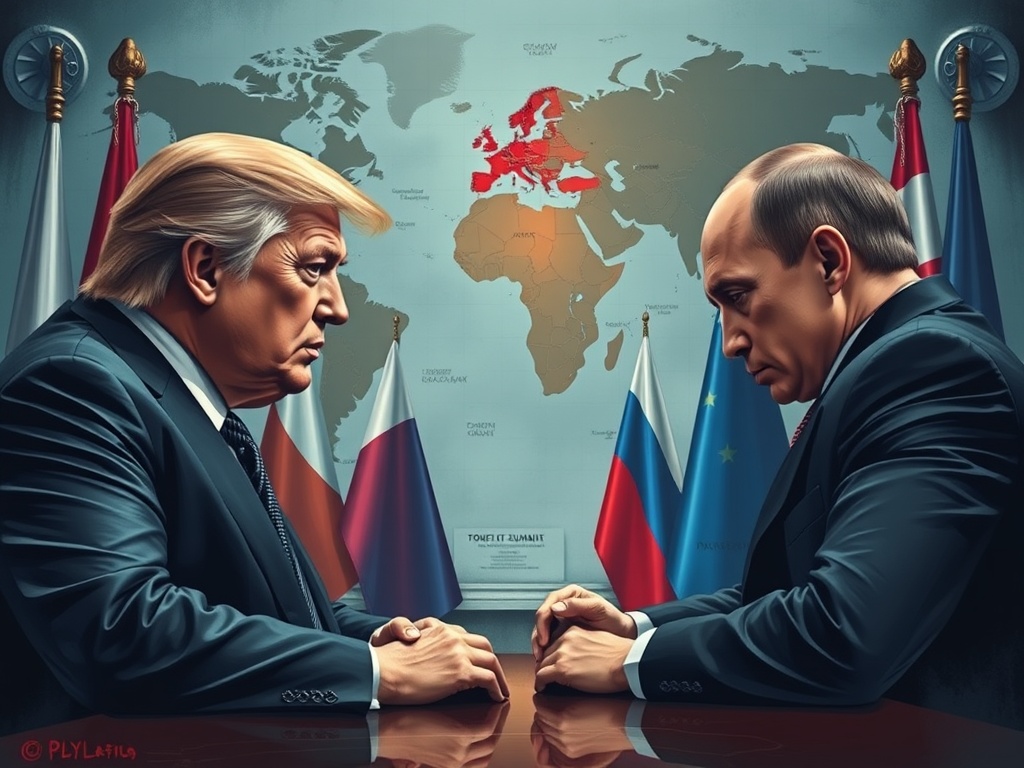The Darkening Horizon for Ukraine
Last week, after US Defense Secretary Pete Hegseth ruled out NATO membership for Ukraine and indicated that a return to the country’s pre-2014 borders was unrealistic, I reached out to a Ukrainian MP for his thoughts. In response, he sent me a YouTube link to the trailer of the film Darkest Hour. Since that moment, the situation has dramatically deteriorated.
Ukrainians have long harbored fears of being forsaken by the United States, but recent actions taken by President Donald Trump suggest a scenario many believed to be unthinkable—an outright betrayal. The so-called peace talks in Saudi Arabia concluded without tangible agreements, yet the Kremlin achieved precisely what it desired: its officials were positioned front and center on the global stage, while Ukraine was conspicuously excluded. They were treated as equals to representatives from the world’s most powerful nation, a stark contradiction to Russia’s actual status.
Despite its claims, Russia’s economy is less than one-tenth the size of the US economy, its military has been reduced to compelling men on crutches to assault Ukrainian strongholds, and demographic experts question its viability as a state by the century’s end. Following the talks in Saudi Arabia, Marco Rubio expressed his belief that his Russian counterparts were “willing to begin to engage in a serious process” to conclude their full-scale invasion. However, when you ask people in Kyiv about the possibility of a peace agreement, one sentiment arises consistently: “You can’t trust Putin.”
This perspective is not merely subjective; it is a hard-earned lesson that Ukrainians have learned repeatedly over decades. These are the same leaders who insisted they had no intentions of invading Ukraine until the very moment they did. During the Saudi negotiations, a naive team of US diplomats was outmaneuvered by an adversary that operates under an entirely different set of rules, where truth is a foreign concept.
After the talks, Russian Foreign Minister Sergey Lavrov dismissed a US proposition for a moratorium on strikes against civilian energy infrastructure, asserting it was unnecessary because Russia does not target such structures. That very night, Russia launched nearly 150 kamikaze drones aimed at Ukraine’s civilian energy network, a scenario that has become a daily occurrence. In Kyiv, uninterrupted nights of sleep, free from the sounds of air defenses and exploding drones, have become a rare luxury.
Historical Revisionism and the Current Narrative

Despite the undeniable realities of the past three years, Trump has now taken to claiming that Ukrainian President Volodymyr Zelensky is the “dictator,” while portraying Vladimir Putin as a negotiable figure. This shift feels less like a mere change in geopolitics and more like a fundamental alteration of reality itself. On Wednesday morning, “who started the Ukraine war” trended as one of the top search terms in the US, following Trump’s erroneous accusations that Ukraine was to blame.
The rewriting of history is unfolding before our very eyes: Ukraine has taken up arms to defend itself against tyranny, a narrative that resonates deeply within American values. Yet, American citizens are being led to believe by their own president that Ukraine somehow deserved its invasion—and alarmingly, many are buying into this distorted view.
It has almost become a cliché to accuse individuals of disseminating Russian propaganda, but both Trump and Elon Musk have recently targeted Zelensky with claims so far removed from reality that one struggles to discern their strategy, if any exists. As I write this, Musk has asserted on X that people in Ukraine “despise” Zelensky. Ironically, Trump’s attacks this week have only bolstered Zelensky’s already considerable support in Ukraine (his approval rating currently surpasses Trump’s).
“[Zelensky] tries to do his best for us and helps as much as he can,” one woman told the Kyiv Independent in a recent vox pop. Attacking Zelensky’s legitimacy mirrors tactics straight from the Kremlin’s playbook, aimed at undermining Ukraine and sowing discord, thus simplifying the task of a potential Russian takeover. Even if this is part of a negotiation tactic regarding Ukraine’s rare earth minerals, the harm has already been inflicted.
Having lived in Ukraine for nearly four years, I can attest that the mood here is the most somber it has been since the early days of Russia’s full-scale invasion. The absence of a coordinated European response, coupled with the current lack of opposition to Trump in the US, has left Ukrainians feeling isolated. Nevertheless, they are far from feeling defeated. “We made it in 2022, and we’ll do it again,” one friend messaged me, adding: “With them, without them.”
What Ukrainians seek from the UK and Europe is decisive leadership—a unified response to a White House that appears to be embracing a dictator while discarding the fundamental values that the West claims to uphold. Ukraine has been fighting for these values on European soil for three long years, and it is the least they deserve.
Chris York is a journalist living in Kyiv




